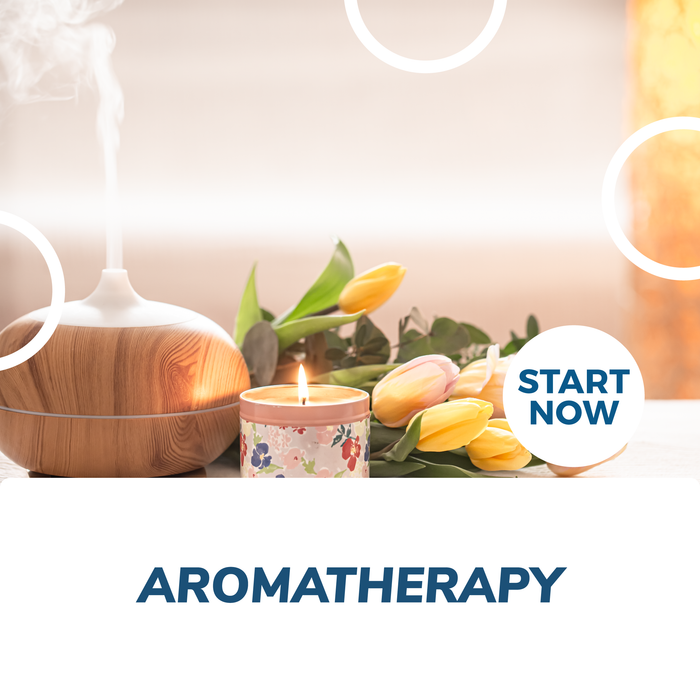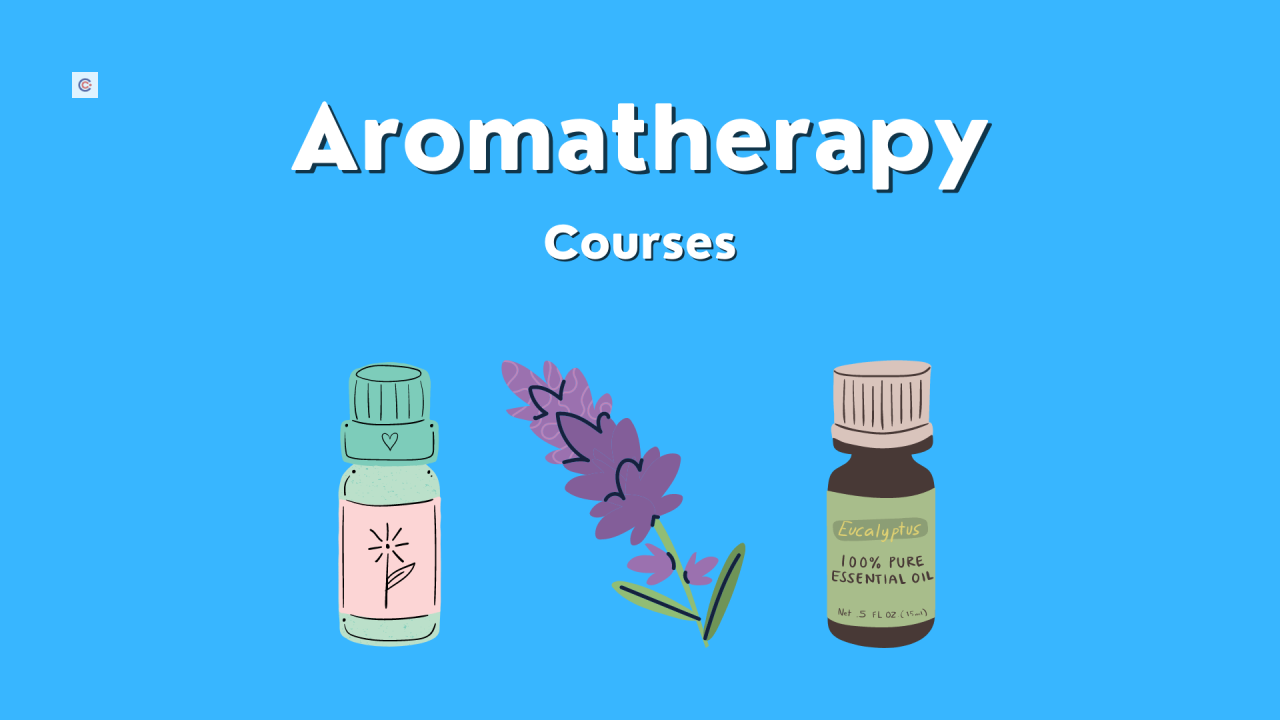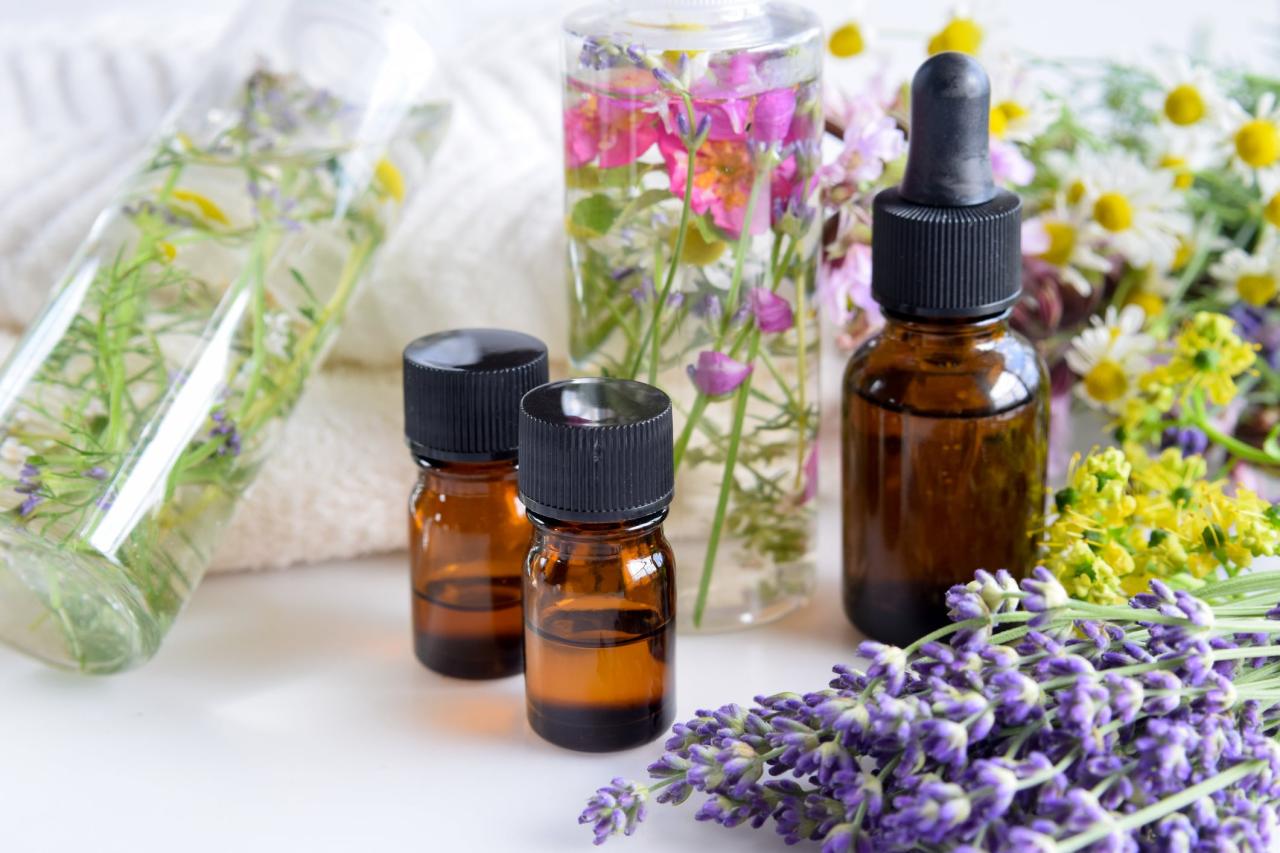Step into the enchanting realm of aromatherapy online, where the ethereal fragrances of essential oils unveil a world of tranquility and well-being. From ancient rituals to modern-day marvels, aromatherapy has captivated hearts and minds, offering a natural path to relaxation, rejuvenation, and healing.
In this comprehensive guide, we delve into the secrets of aromatherapy, exploring its origins, therapeutic applications, and the transformative power of essential oils. Whether you’re seeking solace from stress, restful slumber, or relief from physical ailments, aromatherapy online empowers you to harness the healing wisdom of nature.
Aromatherapy Benefits and Uses
Aromatherapy is an ancient practice that uses essential oils extracted from plants to promote relaxation, well-being, and physical health. It has been used for centuries in various cultures around the world and has gained increasing popularity in modern times as a complementary therapy.
Essential oils are highly concentrated plant oils that contain volatile compounds responsible for their distinct scents and therapeutic properties. When inhaled or applied to the skin, these compounds interact with the body’s olfactory system and nervous system, triggering various physiological and psychological responses.
Stress Relief and Relaxation
Aromatherapy is widely known for its calming and relaxing effects. Essential oils like lavender, chamomile, and ylang-ylang have been shown to reduce stress and anxiety levels. These oils promote relaxation by slowing down the heart rate, lowering blood pressure, and calming the mind.
Improved Sleep
Certain essential oils can aid in improving sleep quality. Oils like lavender, valerian root, and bergamot have sedative properties that help relax the body and mind, promoting restful sleep. Inhaling these oils before bedtime can create a calming environment and reduce sleep disturbances.
Pain Management
Aromatherapy has shown promise in managing pain, particularly chronic pain. Essential oils like peppermint, rosemary, and eucalyptus have analgesic and anti-inflammatory properties. Applying these oils to the affected area can help reduce pain intensity and inflammation.
Other Benefits
In addition to the benefits mentioned above, aromatherapy has also been associated with the following:
- Enhanced mood
- Improved cognitive function
- Reduced nausea and vomiting
- Boosted immunity
- Skincare and haircare
Essential Oils for Aromatherapy
Essential oils are highly concentrated plant oils that capture the therapeutic properties of the plants from which they are extracted. In aromatherapy, these oils are diffused into the air or applied topically to promote relaxation, improve mood, and alleviate various physical and emotional ailments.
When selecting essential oils for aromatherapy, it is crucial to use high-quality, pure oils. Adulterated or synthetic oils may not provide the desired therapeutic benefits and can even be harmful.
Popular Essential Oils for Aromatherapy
| Essential Oil | Botanical Name | Extraction Method | Key Therapeutic Properties |
|---|---|---|---|
| Lavender | Lavandula angustifolia | Steam distillation | Calming, relaxing, sleep-promoting, pain-relieving |
| Peppermint | Mentha piperita | Steam distillation | Invigorating, stimulating, headache-relieving, nausea-reducing |
| Eucalyptus | Eucalyptus globulus | Steam distillation | Decongesting, expectorant, immune-boosting, anti-inflammatory |
| Tea Tree | Melaleuca alternifolia | Steam distillation | Antiseptic, antifungal, antibacterial, acne-fighting |
| Lemon | Citrus limon | Cold pressing | Uplifting, mood-boosting, purifying, disinfectant |
Each essential oil has a unique aroma and therapeutic properties. Here are detailed descriptions of some of the most popular oils:
Lavender
Lavender has a calming and relaxing aroma. It is commonly used to promote sleep, reduce stress, and alleviate anxiety. Lavender oil is also effective in pain relief and can help soothe headaches, muscle aches, and menstrual cramps.
Peppermint
Peppermint has an invigorating and stimulating aroma. It is often used to improve focus and concentration, reduce headaches, and alleviate nausea. Peppermint oil can also help improve digestion and relieve respiratory congestion.
Eucalyptus
Eucalyptus has a strong, camphoraceous aroma. It is commonly used to clear congestion, reduce inflammation, and boost the immune system. Eucalyptus oil is also effective in treating respiratory infections, such as bronchitis and sinusitis.
Tea Tree
Tea Tree has a pungent, medicinal aroma. It is renowned for its antiseptic and antimicrobial properties. Tea Tree oil is commonly used to treat acne, skin infections, and fungal infections. It can also be used as a natural deodorant and disinfectant.
Lemon
Lemon has a fresh, citrusy aroma. It is commonly used to uplift mood, reduce stress, and purify the air. Lemon oil is also effective in promoting digestion and cleansing the liver.
Aromatherapy Diffusers and Techniques

Aromatherapy diffusers are devices designed to disperse essential oils into the air, allowing their therapeutic benefits to be inhaled. There are several types of diffusers available, each with its unique mechanism and advantages.
Types of Aromatherapy Diffusers
Ultrasonic Diffusers:These diffusers use high-frequency sound waves to create vibrations that break down essential oils into tiny particles, releasing them into the air as a cool mist. They are quiet, energy-efficient, and can provide a consistent diffusion for several hours.
Nebulizing Diffusers:Nebulizing diffusers use a stream of compressed air to atomize essential oils into a fine mist. They produce a strong, concentrated aroma and can cover a large area. However, they can be noisy and require more maintenance than other types of diffusers.
Heat Diffusers:Heat diffusers use heat to vaporize essential oils, releasing their fragrance into the air. They are less common than other types of diffusers and can alter the chemical composition of some essential oils, potentially reducing their therapeutic benefits.
Principles of Diffusion
The diffusion process in aromatherapy involves the release of essential oil molecules into the air. The rate of diffusion is affected by several factors, including:
- Temperature:Higher temperatures increase the rate of diffusion.
- Humidity:Higher humidity levels slow down the rate of diffusion.
- Airflow:Good air circulation helps distribute essential oils evenly throughout the space.
- Size of the space:Larger spaces require more essential oils and a longer diffusion time.
Using Aromatherapy Diffusers Effectively
To use aromatherapy diffusers effectively, follow these steps:
- Choose the right diffuser:Select a diffuser type that suits your needs and the size of the space.
- Add essential oils:Add a few drops of essential oils to the diffuser’s reservoir, following the manufacturer’s instructions.
- Turn on the diffuser:Plug in the diffuser and turn it on. Adjust the diffusion settings as desired.
- Monitor the diffuser:Check the diffuser regularly to ensure it is functioning properly and that the essential oils are not depleted.
Safety Considerations for Aromatherapy
While aromatherapy offers numerous benefits, it’s crucial to be aware of potential risks and take necessary precautions to ensure safe usage.
Essential oils are highly concentrated and can cause skin irritation or allergic reactions when applied directly to the skin. Always dilute essential oils with a carrier oil, such as jojoba or coconut oil, before topical application.
Dilution Ratios
The appropriate dilution ratio depends on the essential oil and the intended use. Generally, a 2-5% dilution is recommended for topical applications, while a 1-3% dilution is suitable for inhalation.
Avoiding Direct Skin Contact
Avoid applying undiluted essential oils directly to the skin, as this can lead to irritation or burns. If skin contact occurs, wash the area with soap and water immediately.
Respiratory Issues
Inhaling essential oils in high concentrations can cause respiratory issues, especially in individuals with asthma or other respiratory conditions. Always use essential oils in well-ventilated areas and avoid excessive inhalation.
Drug Interactions
Certain essential oils can interact with medications, potentially altering their effectiveness or causing adverse effects. Consult with a healthcare professional before using essential oils if you are taking any medications.
Responsible Use
Essential oils should be used responsibly and within recommended limits. Excessive use can lead to adverse effects, including skin irritation, headaches, and nausea.
Aromatherapy for Specific Conditions

Aromatherapy can be a helpful complementary therapy for a variety of conditions. Essential oils can be used to promote relaxation, relieve pain, improve sleep, and boost mood.
Here are some common conditions that can benefit from aromatherapy:
Anxiety
Aromatherapy can help to reduce anxiety and promote relaxation. Some essential oils that are particularly effective for anxiety include lavender, chamomile, and bergamot.
- Lavender oil has been shown to reduce anxiety and promote sleep in both adults and children.
- Chamomile oil has calming and sedative effects, which can help to relieve anxiety and promote relaxation.
- Bergamot oil has uplifting and calming effects, which can help to reduce anxiety and improve mood.
Insomnia
Aromatherapy can help to improve sleep quality and reduce insomnia. Some essential oils that are particularly effective for insomnia include lavender, chamomile, and ylang-ylang.
- Lavender oil has been shown to promote relaxation and sleep in both adults and children.
- Chamomile oil has calming and sedative effects, which can help to promote relaxation and sleep.
- Ylang-ylang oil has sedative and relaxing effects, which can help to improve sleep quality.
Headaches
Aromatherapy can help to relieve headaches and migraines. Some essential oils that are particularly effective for headaches include peppermint, rosemary, and lavender.
- Peppermint oil has analgesic and anti-inflammatory properties, which can help to relieve headaches.
- Rosemary oil has stimulating and pain-relieving effects, which can help to relieve headaches.
- Lavender oil has calming and relaxing effects, which can help to reduce stress and tension headaches.
Skin Issues
Aromatherapy can help to improve skin health and treat a variety of skin conditions, such as acne, eczema, and psoriasis. Some essential oils that are particularly effective for skin issues include tea tree oil, lavender oil, and chamomile oil.
- Tea tree oil has antibacterial and anti-inflammatory properties, which can help to clear acne and reduce inflammation.
- Lavender oil has calming and soothing effects, which can help to reduce redness and irritation.
- Chamomile oil has anti-inflammatory and antioxidant properties, which can help to soothe and protect the skin.
Final Summary

As we conclude our aromatic journey, it’s evident that aromatherapy online is not merely a trend but a timeless practice that empowers individuals to enhance their well-being. By embracing the versatility and therapeutic potential of essential oils, we unlock a world of natural remedies and self-care rituals that nurture both body and mind.
May the fragrant embrace of aromatherapy continue to inspire your path towards holistic health and inner harmony. Remember, the world of scents awaits your exploration, offering a symphony of aromas to uplift, soothe, and heal.